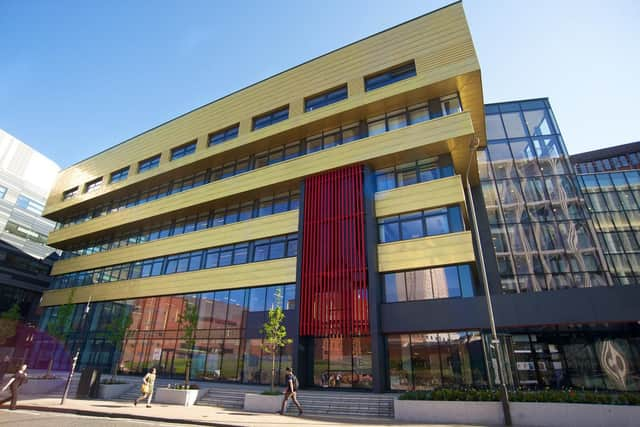Prosthetics tech firm inaugural winner of University of Strathclyde entrepreneurship award
PCAD was named as the winner of the first Stephen Young Entrepreneurship Award, for its work on fittings for lower-limb prosthetics.
The £10,000 prize is the first in a range of awards designed to support Strathclyde's emerging entrepreneurs.
Advertisement
Hide AdAdvertisement
Hide AdThe awards programme has been created as one important element of a £50 million donation to the institution by the charitable foundation of alumnus, entrepreneur and philanthropist Charles Huang.


The award is presented in memory of the late Professor Stephen Young, former head of Strathclyde's department of marketing and Huang's supervisor and mentor during his PhD studies.
The PCAD technology has been designed to make a significant improvement to the way in which lower limb prosthetics are fitted. It combines the technology of pressure casting with state-of-the-art, computer-aided design scanning technology.
Anthony McGarry, a senior teaching fellow in the university’s department of biomedical engineering, founded the company.
Sir Jim McDonald, principal and vice-chancellor of Strathclyde, said: “The donation from the Charles Huang Foundation is already having a profound impact on the strong culture of entrepreneurship at Strathclyde. The support and guidance we offer to new and existing entrepreneurs has benefited enormously from this gift.
“A major focus of the Charles Huang Foundation is to foster entrepreneurial skills and bold ideas with a global vision. PCAD produces technology with the capacity to make a positive difference to many people's lives and is an ideal example of this.”
McGarry said: “There are a growing number of people with amputation particularly in low to medium income countries. The World Health Organisation estimates that between 35 million and 40 million people currently require prosthetic or orthotic services, with only one in ten people having access to such services due to a shortage of clinicians and services, particularly in Asia and Africa.
“Current methods of prosthetic fit are highly dependent on clinician skill and may result in inconsistent socket fit, causing pain or skin breakdown. PCAD aims to deskill prosthetic shape capture, with potential to supply previously untapped markets, improving fit and the quality of life of prosthetic users.”
A message from the Editor:
Thank you for reading this article. We’re more reliant on your support than ever as the shift in consumer habits brought about by coronavirus impacts our advertisers. If you haven’t already, please consider supporting our trusted, fact-checked journalism by taking out a digital subscription: www.scotsman.com/subscriptions
Comments
Want to join the conversation? Please or to comment on this article.
